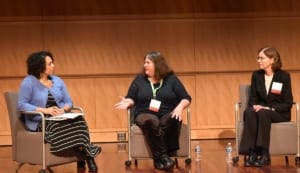
Center for Technology Commercialization Business Development Consultant Idella Yamben (left) moderates a discussion with SBIR grant recipients Lisa Dotzler of Semba Biosciences, Inc. (center) and Jean Brittain of Calimetrix (right) at the 2019 Biohealth Summit.
Wisconsin ranks second nationally in the success rate of businesses applying for National Science Foundation (NSF) business grants, underscoring the strong support health and life science startups in the state receive in their commercialization journey.
NSF is the fifth largest distributor of Small Business Innovation Research (SBIR) awards among federal agencies. SBIR grants are designed to encourage small businesses in the U.S. to conduct research that has the potential to produce new business opportunities. Small Business Technology Transfer (STTR) funding, also available through NSF, encourages joint ventures between small businesses and nonprofit research institutions.
According to an analysis of NSF data conducted by the State Science & Technology Institute (SSTI), Wisconsin businesses logged a 26.7% success rate for SBIR and STTR applications to NSF from 2008 to 2017, trailing only New Hampshire nationally, which achieved a 28% application success rate over the same period. NSF received more than 20,000 proposals, 3,600 of which were approved, representing a national success rate of 16.8%, according to SSTI’s analysis.
Idella Yamben, business development consultant for the Wisconsin Center for Technology Commercialization (CTC), credits Wisconsin’s startup ecosystem for the success rate Wisconsin companies achieve in the federal grant application process. Speaking at the 2019 Biohealth Summit in Madison, Yamben encouraged Wisconsin startups to contact CTC before they even apply for an SBIR or STTR grant. “We’re here to help you through the process,” she said.
Yamben cited the SBIR Advance Program, funded by the Wisconsin Economic Development Corporation (WEDC), as a key factor in preparing Wisconsin’s startups for the requirements of federal funding. In addition to CTC’s SBIR Ready Bootcamp—a monthlong course designed to help entrepreneurs draft their funding applications—WEDC’s SBIR/STTR Matching Grant is intended to cover business development costs precluded by SBIR or STTR funds.
Speaking at the Biohealth Summit in Madison, Semba Biosciences, Inc., Director of Operations Lisa Dotzler said, “Before going through CTC’s training, we would do anything if you paid us for it. This process forced us to focus on what we wanted to do.”
Jean Brittain, CEO and co-founder of Calimetrix, credits CTC’s programming with holding her company accountable to a lean startup process that helped attract SBIR Funding.
Brittain described SBIR funding in somewhat paradoxical terms. After receiving a grant, she said, “You feel really rich, but you’re actually really poor.” That’s because limitations on the federal funds prevented companies from using it for critical business development functions such as strategic planning, education, networking or marketing.
That’s where WEDC funding comes in. “Startups face incredible challenges building their companies, not all of which are addressed by SBIR or STTR funding,” said WEDC Vice President of Entrepreneurship and Innovation Aaron Hagar. “Our matching funds are intended to help startups pursue their commercialization milestones at a phase when they are not quite ready for market-based capital.” The availability of WEDC’s SBIR/STTR matching funds has created a network of adjacent service providers that is unique to Wisconsin, noted Brittain.
Wisconsin companies have received 69 NIH SBIR/STTR awards since 2016, representing more than $32 million in grant funding, according to CTC.
Find more information on the WEDC’s SBIR/STTR Matching Grant here.




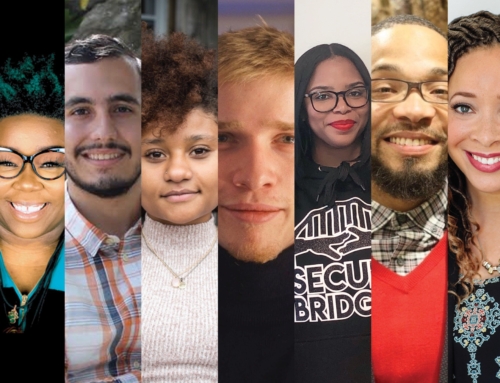
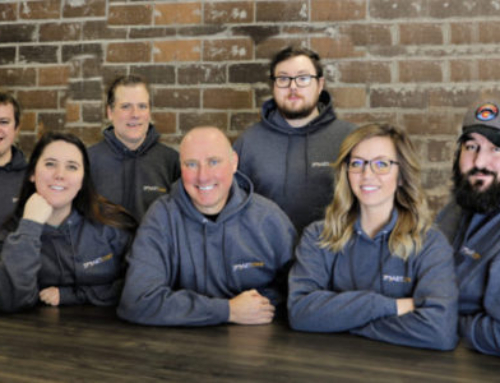
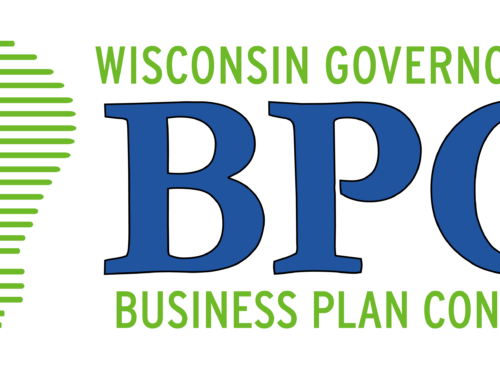

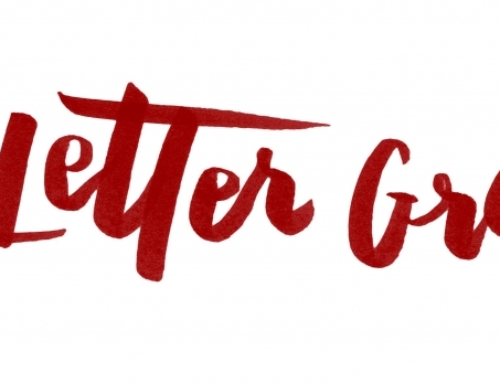
FOLLOW US